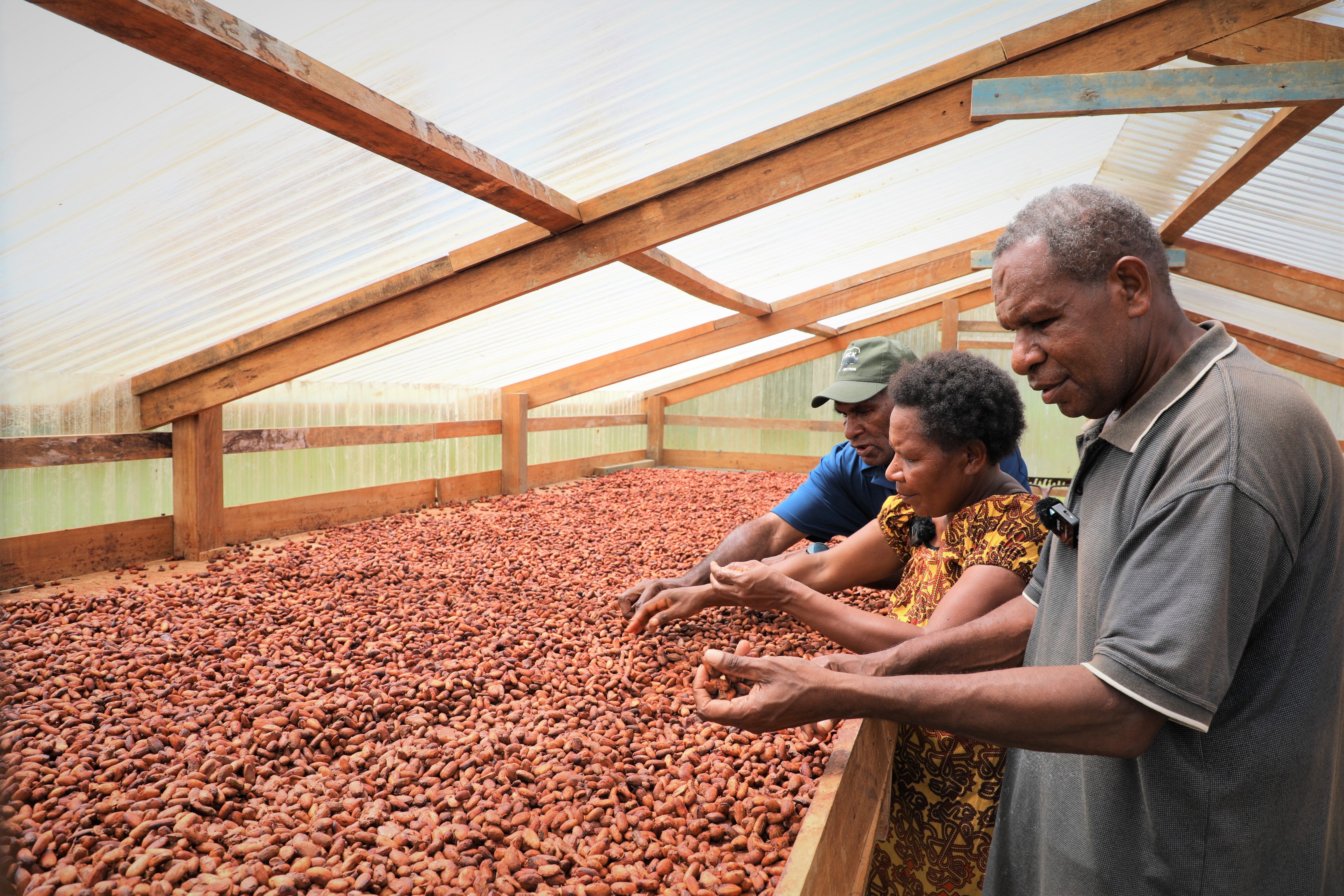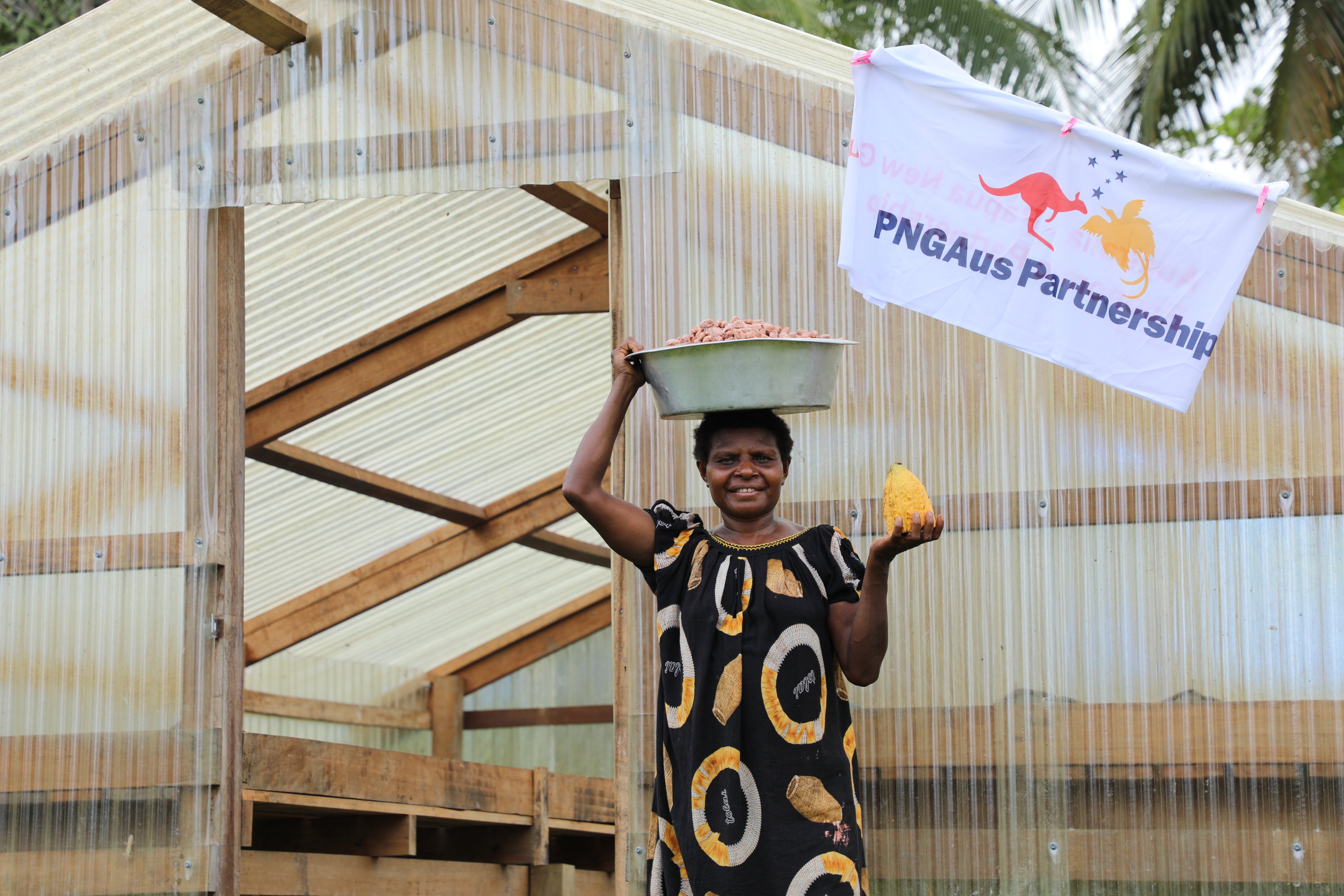BACKGROUND
Post-harvest bottlenecks in Papua New Guinea limit trade, price, and potential
Across emerging economies, millions of smallholder farmers produce high-demand commodities—yet lack the infrastructure to meet quality standards or connect to premium buyers. For cocoa, basic post-harvest limitations remain one of the greatest barriers to export competitiveness.
Cocoa has long been one of Papua New Guinea’s most important crops, but outdated drying systems have held back quality, income and market access for many smallholders.
Smoke contamination from traditional firewood dryers taints bean flavor, limits traceability, reduces prices, and locks producers out of premium markets. Labour and fuel demands created by this woodfired drying method also fall heavily on rural households, especially women. Without scalable alternatives, losses persist, even as global demand rises for traceable, smoke-free cocoa.
PNG faced a pressing question: how to deliver quality cocoa without sacrificing rural access to export markets?
WHAT WE’RE DOING
A light-touch, high-impact solution is linking small PNG producers to premium buyers
The Australian Government partnered with cocoa exporter Outspan PNG Ltd. to deliver a practical answer: solar dryers for cocoa that protect quality, reduce emissions and raise farmer incomes without adding operational complexity.
Implemented through the Australia–Papua New Guinea Economic Partnership (APEP)—managed by Abt Global—this intervention replaces traditional woodfired drying kilns with solar-powered sheds designed for smallholder fermenters. These elevated drying sheds use the sun—not firewood—to complete the post-fermentation drying phase for cocoa beans.


